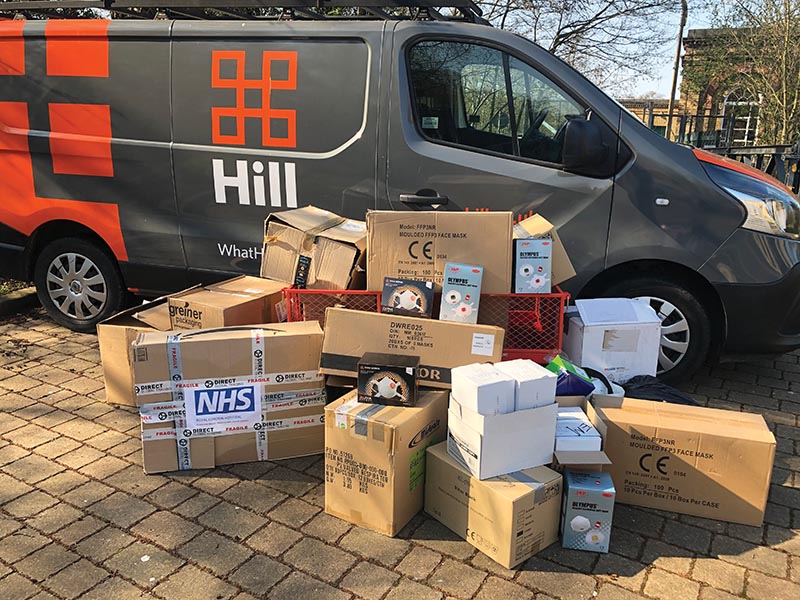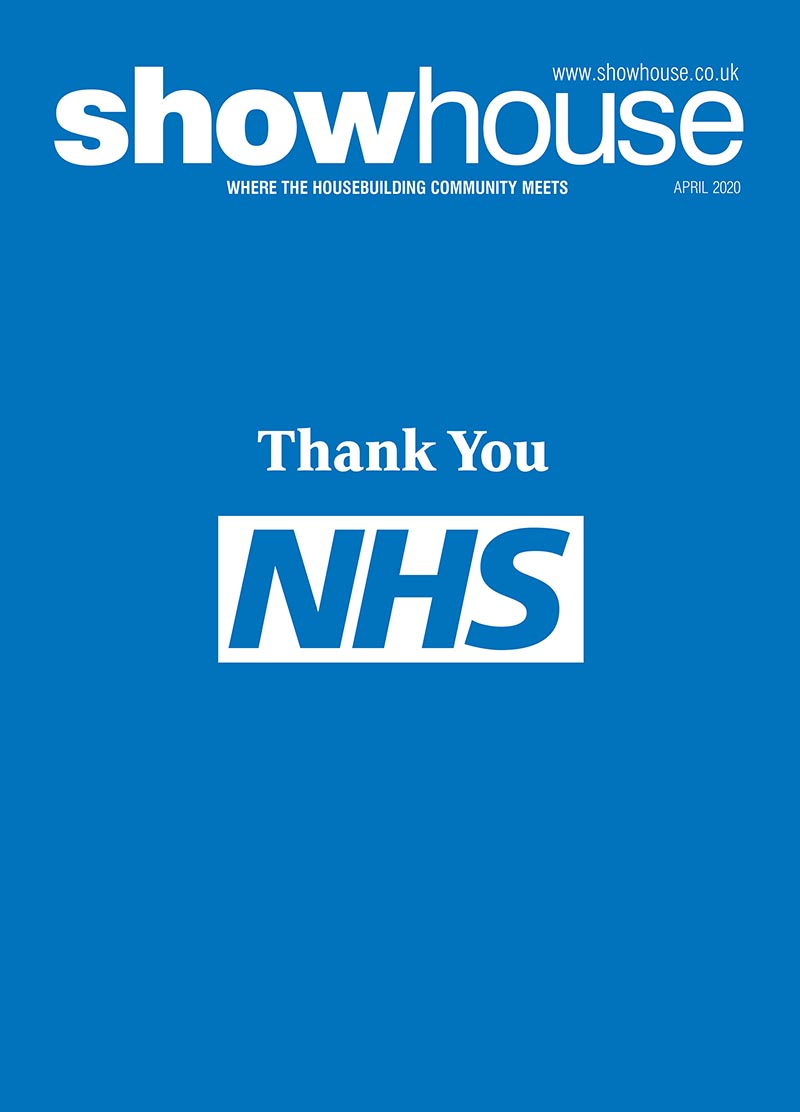The housebuilding sector has risen to the challenge of supporting the battle against coronavirus – the fight of a lifetime, writes Rupert Bates.
As COVID-19 took an increasing and deadly grip last month, leading to a national lockdown, it forced many construction sites to shut, with a crippling business effect, particularly on SMEs without the cash reserves and credit facilities to cope with a global pandemic that has no rules of engagement; a war with no diplomacy to negotiate a peace deal.
The industry is well versed in recessions caused by the volatility of economic cycles and the wider friction of geo-politics and global markets, but this was something else entirely. Financial hardship is one thing; a killer disease of unfathomable depth and pace another.
Housebuilding was an industry, like many others, as we welcomed in 2020, which had just exhaled a collective sigh of relief. Regardless of party allegiance, a majority government was in power; Brexit done if not exactly dusted and so time to get on with the urgent need to house the nation and, yes, make a few quid along the way.
Ahead of this inevitable recession, and its severity is not yet clear, there were no leaves to read in the bottom of mugs of builders’ tea; Bill Gates might have seen it coming, but anyone else who claims foresight on this one is fibbing. To go bust through absolutely no fault of your own is the cruellest commercial fall of all.
 Persimmon
Persimmon
Initially it was about short-term business survival with quick and vital decisions to make as the term ‘furlough’ entered the employment lexicon. For others, it wasn’t about job retention, but out-and-out redundancy.
We, mostly, did as we were told as the government advice – conflicting, comforting or downright terrifying – was administered. We realised what was about to happen could put intolerable burden on our National Health Service. But this wasn’t about your hip replacement going to the back of the queue, or an endless wait for a GP appointment about that dull ache nagging at your hypochondria. This was life and death.
However, as others fought on the frontline, we weren’t being asked to sign up to fight the enemy; this wasn’t conscription. We were just told to stay at home. Your country needs you to stay at home; Kitchener was saying stay in the kitchen. God how boring, but at least we could share silly videos.
You only know the business you know. Housebuilding and its endlessly restless, creative and supportive supply chain are not made, practically or emotionally, to work from home, or the new acronym WFH.
 Hill
Hill
Who knows who got impatient to help first, but a LinkedIn post from Matt Fleming, founder of Aylesworth Fleming, told of a doctor friend of his in a London hospital pleading for respirator face masks and that some of the masks used in construction as personal protective equipment (PPE) could work for the NHS and other care workers.
Fleming’s post got 15,000 views in three days and an industry was mobilised still further.
I shouted to Barratt and Britain’s largest housebuilder responded, with regions supplying PPE to local hospitals.
Kier was quickly on the case; Taylor Wimpey, Persimmon, Hill, Vistry (Bovis and Linden in old money), Redrow and CALA were emptying cupboards, loading vans and delivering vital equipment. Fleming’s doctor friend replied: “Thank you. This will save lives.”
 Dr James Cockburn
Dr James Cockburn
A friend of mine, Dr James Cockburn, consultant cardiologist at the Royal Sussex County Hospital, was put in direct contact with Barratt, as well as the Home Builders Federation as the HBF helped coordinate a national operation to deliver masks and gloves.
“I would like to thank housebuilders and suppliers on behalf of the NHS. At times like this we need to pull together and it amazes me how brilliantly different industries can support a common cause. There has been no hesitation, just gestures of good will and a desire to help. With this mentality we can get through this,” said Dr Cockburn.
So distant was I from the health service even in ‘normal’ times, this was a friend who I’d only seen in medical action running onto a rugby field where our sons are Brighton teammates to help with injured young players.
Now here he was in full PPE combat gear not only saving lives – yes I know it’s your job James – but putting his on the line. No exaggeration; no embellishment. This is what the NHS and other care professionals, not to mention all the other keyworkers across a myriad of trades, are doing.
“We were delighted to find out that we use the FFP3 face masks which the NHS need in their fight against coronavirus and we set about emptying our offices and sites across the country,” said David Thomas, group CEO of Barratt. “Anything we can do to help the heroic NHS staff and care workers on the frontline of this battle will serve to show our appreciation of the incredible jobs they do.”
Galliard Homes handed over warehouses as emergency storage facilities for essential supplies, while Berkeley Group, as well as delivering PPE to local hospitals, is donating to food banks and charities and several of its sites are now providing parking for NHS staff and emergency services, supporting vulnerable residents and helping local food shops and suppliers deliver to communities.
Retirement homes developer McCarthy & Stone was offering completed apartments in unoccupied developments for older people recovering from coronavirus or NHS workers. Pennyfarthing Homes donated funds and resources for local school meals and food banks.
 Lifestyle Interiors
Lifestyle Interiors
Lifestyle Interiors, so used to furnishing show homes for housebuilders, was shipping furniture stock to NHS staff to furnish empty new build properties donated by a private client. Powerday, the waste management and recycling business, used its fleet to deliver meals to keyworkers and Travis Perkins was providing building materials for the temporary Nightingale Hospital at London’s ExCeL centre and sending more than 30,000 disposable respirators to NHS Wales.
I’ve missed out plenty of companies, large and small, not to mention generous individuals who’ve made substantial private donations. Everywhere you look, the industry was and is responding. We know who the heroes are. But what has been highlighted is housebuilding has got their backs and will continue to do so.
Stay at home and tomorrow we will build more homes, although the morals and motivations for doing so may, by then, be very different.
The April edition of Show House magazine will be going online in full on Friday 24 April.
